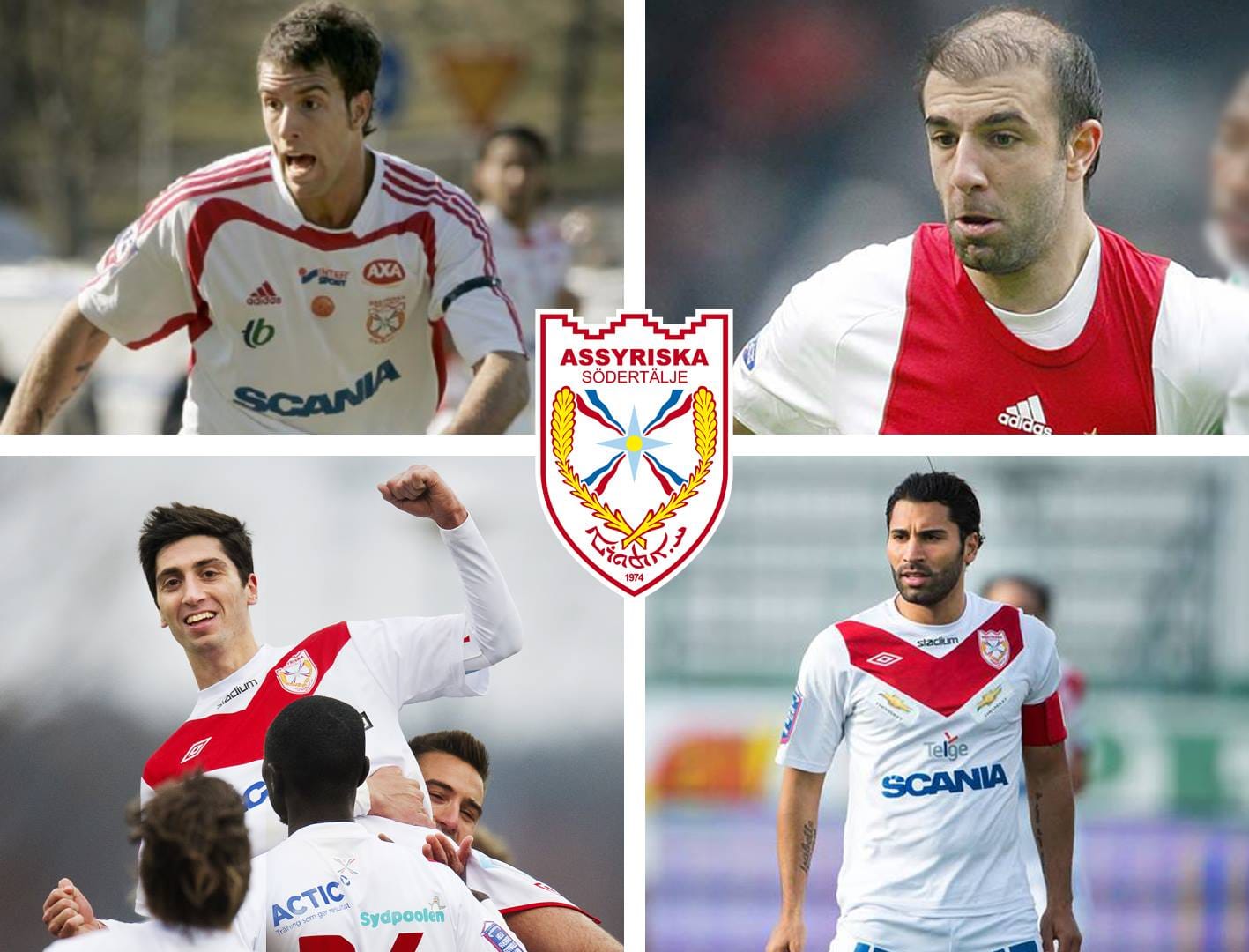Hammarby IF, a Swedish football team in the countries top division, has secured qualification for the 2025–26 UEFA Europa Conference League, marking a return to European competition for the club. The achievement carries special significance for the Swedish-Assyrian community, with two players of Assyrian heritage, captain Nahir Besara and rising star Adrian Lahdo, playing key roles in the team’s success.
Nahir Besara, a product of Södertälje’s Assyriska FF, delivered a remarkable campaign with 17 goals and 4 assists in 28 games, making him the joint top scorer in the Swedish top division, Allsvenskan, at the time of writing. His leadership and consistency were further recognised when he was named Allsvenskan Player of the Month in August. Meanwhile, 18-year-old Adrian Lahdo impressed in his debut senior season, registering two assists and establishing himself as one of Sweden’s most promising young midfielders.
The Assyrian Legacy Within Hammarby and Beyond
Hammarby IF has long been connected to Sweden’s Assyrian community, having featured numerous players of Assyrian background over the past two decades.
Alongside Besara and Lahdo, the club has previously fielded Mayckel Lahdo, Adrian’s older brother, who now plays in France’s Ligue 1 with FC Nantes. Other notable Assyrian alumni include Kennedy Bakircioglü, Andreas Haddad, and Stefan Batan, all of whom began their careers at Assyriska FF, a club founded in 1974 by Assyrian immigrants from the northern regions of Assyria.
Bakircioglü remains one of Hammarby’s most iconic figures. His famous “beer celebration,” where he caught and drank a beer thrown from the crowd after scoring a free kick, is etched into Swedish football folklore. His career included a trial at Manchester United, and spells at Twente, Ajax, and Racing Santander, before returning to Hammarby, where his legendary #10 jersey was retired, a distinction no other player has received at the club.

A Breeding Ground for Assyrian Football Talent
Sweden continues to produce talented Assyrian footballers, many of whom have gone on to represent various national teams, a reflection of the Assyrian diaspora’s global reach.
Notable names include Mikael Ishak (Lech Poznań and Sweden international), Jimmy Durmaz (former Sweden international and World Cup participant), Rebin Sulaka, Kevin Yakob, André Alsanati, Peter Gwargis, Lucas Shlimon, Noah Shamoun, Antonio Yakoub, Elmar Abraham, and Simon Amin (Iraq and Syria internationals).
Both Shamoun and Shlimon are products of Assyriska IK, a club based in the Swedish town of Jönköping, known for developing professional-level talent. Assyrians have also represented Lebanon, with brothers Felix and Alexander Michel among the latest of Assyrian heritage to don the Cedars’ national jersey.
A Platform for Identity and Representation
For decades, sport has served as a vital platform for Assyrians to express their identity, foster community pride, and gain international visibility. From Ammo Baba, the legendary Iraqi footballer of Assyrian heritage, to the new generation of Assyrian athletes in Europe, football has symbolised both perseverance and cultural pride.
In Sweden, home to one of the world’s largest Assyrian diasporas, football has become a unifying force and a vehicle for representation. The stories of Besara and Lahdo at Hammarby reflect that evolution, from community-founded clubs in Södertälje to the top tiers of Scandinavian football and now into European competition.
As Hammarby prepare for their Europa Conference League campaign next season, Assyrians from Södertälje to Sarsing will be watching closely, not just in support of a football club, but in celebration of two players who embody the resilience, ambition, and enduring identity of an ancient nation with modern dreams.








